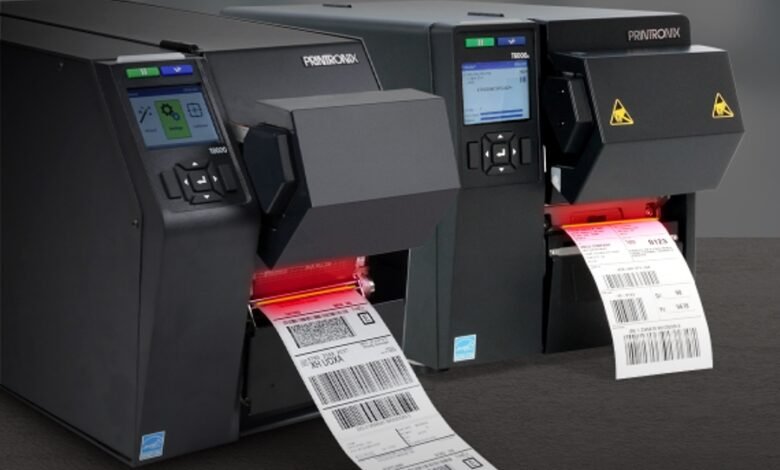Understanding Label Printers and Their Various Types

Label printers are specialized devices designed for the sole purpose of printing labels, tags, and barcodes on various materials. These printers find their application in a wide range of environments, from offices and retail stores to industrial warehouses and laboratories. The diversity in their usage demands a variety of label printers, each with its unique features and functionalities. This article explores the different types of label printers and their respective applications.
Read More: The Best All-in-One Printers for 2023
1. Desktop Label Printers
Desktop label printers are compact, easy-to-use, and ideal for small-scale printing needs. They are commonly used in offices, retail environments, and small businesses. These printers are perfect for printing shipping labels, name badges, and small signage. Desktop label printers usually connect to a computer and can print labels from specialized software or standard office applications. Their small footprint makes them an excellent choice for environments with limited space.
2. Industrial Label Printers
Industrial label printers are built for heavy-duty, high-volume printing. They are robust and can withstand harsh industrial environments. These printers are commonly found in manufacturing facilities, large warehouses, and distribution centers. Industrial label printers can handle a wide range of label sizes and materials, including durable labels that can withstand extreme temperatures, moisture, and chemicals. They often feature larger media rolls, faster print speeds, and advanced connectivity options to integrate with industrial systems.
3. Portable Label Printers
Portable label printers are designed for mobility and on-the-go printing. They are ideal for field service, logistics, and retail applications where labels need to be printed away from a fixed location. These printers are typically battery-operated, lightweight, and can connect wirelessly to mobile devices or laptops. Portable label printers are used for printing price tags, receipts, and delivery labels directly at the point of service.
4. RFID Label Printers
RFID (Radio Frequency Identification) label printers can print and encode labels with RFID technology. These printers are used in supply chain management, asset tracking, and inventory control. RFID labels contain a chip and antenna, allowing for wireless tracking and data collection. RFID label printers are instrumental in environments where tracking the movement and management of items is critical.
5. Thermal Label Printers
Thermal label printers use heat to transfer ink onto the label material and are divided into two types: direct thermal and thermal transfer.
- Direct Thermal Printers: These printers use heat-sensitive labels that darken when heated. They are commonly used for short-term applications like shipping labels, as the print tends to fade over time and when exposed to heat or light.
- Thermal Transfer Printers: These use a thermal ribbon that transfers ink onto the label material when heated. The labels produced are more durable and can withstand longer exposure to elements, making them suitable for outdoor use, asset tagging, and product identification in harsh environments.
Read More: How to Capture the Screen on a Windows or Mac Computer
6. Color Label Printers
Color label printers can print full-color labels and are used in applications where visual appeal and differentiation are important. They are ideal for product packaging, branding, and promotional labeling. These printers offer high-quality, color-rich output and can handle a variety of label materials and finishes.
In conclusion, the type of label printer selected largely depends on the specific needs of the task at hand. From simple desktop solutions to sophisticated industrial and RFID systems, each type offers unique features and functionalities catering to different labeling requirements. Whether it’s for organizational, promotional, or tracking purposes, there’s a label printer designed to meet the diverse demands of businesses and industries.











